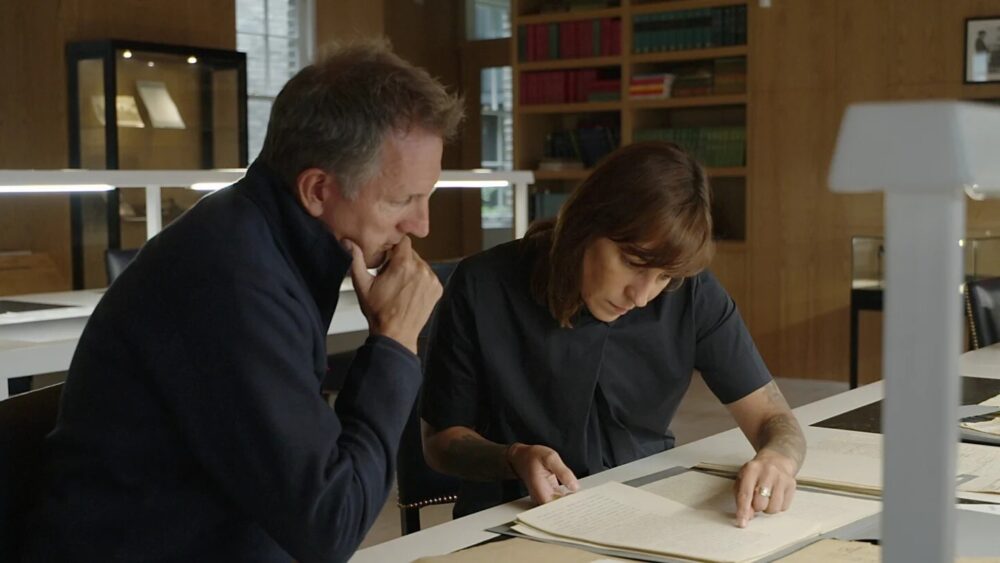Who we are
Since 1990, the Military Archives has been the official place of deposit for records of the Irish Defence Forces, the Department of Defence and Ireland's Army Pensions Board, as defined in the National Archives Act, 1986.
Our brief is to collect material from the foundation of the Irish State up until the present day, including records from overseas missions. From as early as 1924, the National Army undertook to preserve the historical documents of that period, in recognition of the importance of the War of Independence. Some of the earliest collections preserved by the National Army's Historical Section include the Collins Papers; Civil War Operations and Intelligence files; and Captured Documents (Civil War up to 1925); which continue to be accessible today through the Military Archives.
Other major collections include the Military Service Pensions Collection; the Bureau of Military History Collection; and the Brother Allen Collection. These collections are highly significant and cover the periods before, during and after the Revolutionary era. Further collections also explore the Emergency Period in Ireland 1939-1946; the UN Peacekeeping Missions; the Department of Defence; and the various Services and Corps of the Defence Forces over the years.

Please accept cookies to view this content.
Accept cookiesWhat we do
Apart from serving the evidential, legal and heritage needs of the Defence Forces and the Department of Defence, the Military Archives provides public services to a broad spectrum of people. Through our website and in-person reading room, we help with family history queries, academic research and the sourcing of material for TV and radio documentaries.
We also host visits for second and third level educational groups, on request, and provide briefings on our collections to various groups. Our Irish Volunteer and 1916 Case Studies exhibitions are also available to educational institutions through temporary loans, while collection items and documents are temporarily displayed in other places of learning.
Why our work matters
What actually happened that day? It's an age-old question that the Military Archives can help to answer. In a world in which misinformation and disinformation are rife, archives act as a vital source of original, primary documentation.
Contained within this material are the (sometimes conflicting) reports, statements, administration documents and personal letters that add depth to our understanding of the past. By making our material accessible to those in search of answers, the Military Archives collections highlight the nuance, complexity and layered nature of history.
Our collections help clarify what happened on any historically significant day, especially during Ireland's Revolutionary Period, but also during World War II (the Emergency Period in Ireland) and the UN peacekeeping missions.
We also offer access to pension and medal application files, personnel files (from 1922 onward) and many other documents that enable families to finally uncover ancestral stories, gain insights into personal history, and even clarify or correct their own family folklore (both good and bad). By carefully preserving our historical items and documents and providing access to them, we aim to contribute to society, both historically and socially.
Our building
We moved into our current home at Cathal Brugha Barracks in Rathmines, Dublin in 2016. One of the 1916 Centenary capital projects, this recently built facility is connected to the Old Hospital Block building (built in the 1840s), which still houses our Commandant Peter Young Reading Room and administration offices. Our purpose-built storage facilities are now climate controlled (in line with international best standards); our records are protected in a 972-square metre repository, with 21.6 kilometres of shelving over two floors.
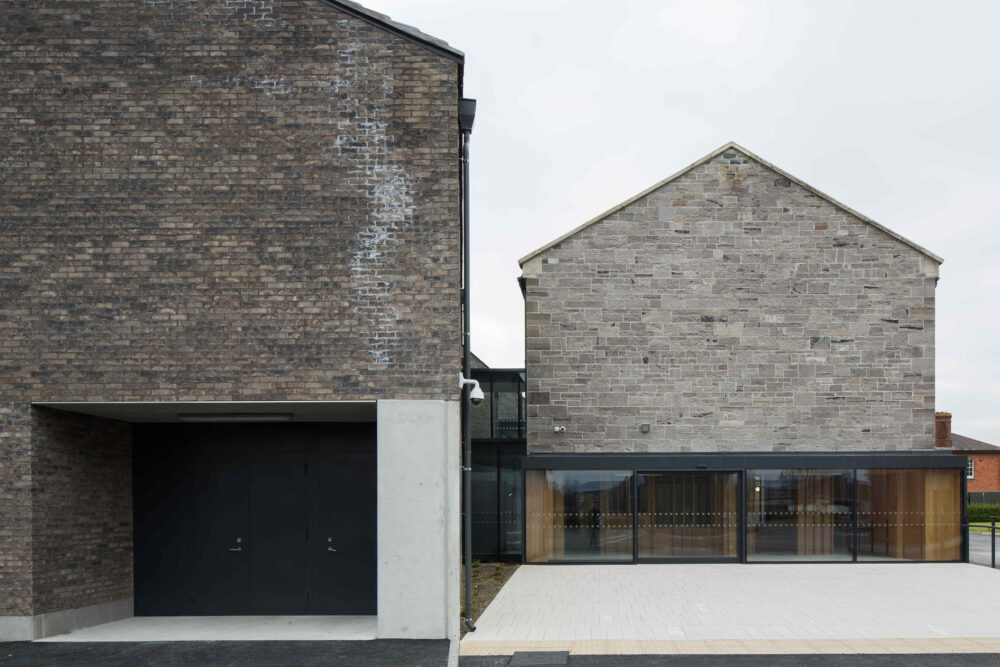
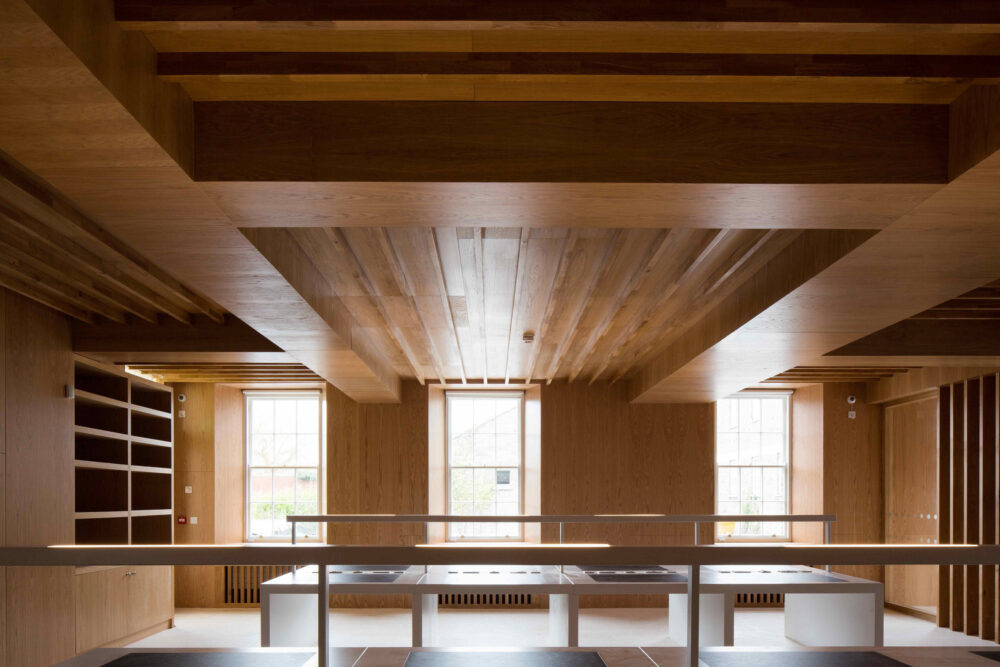
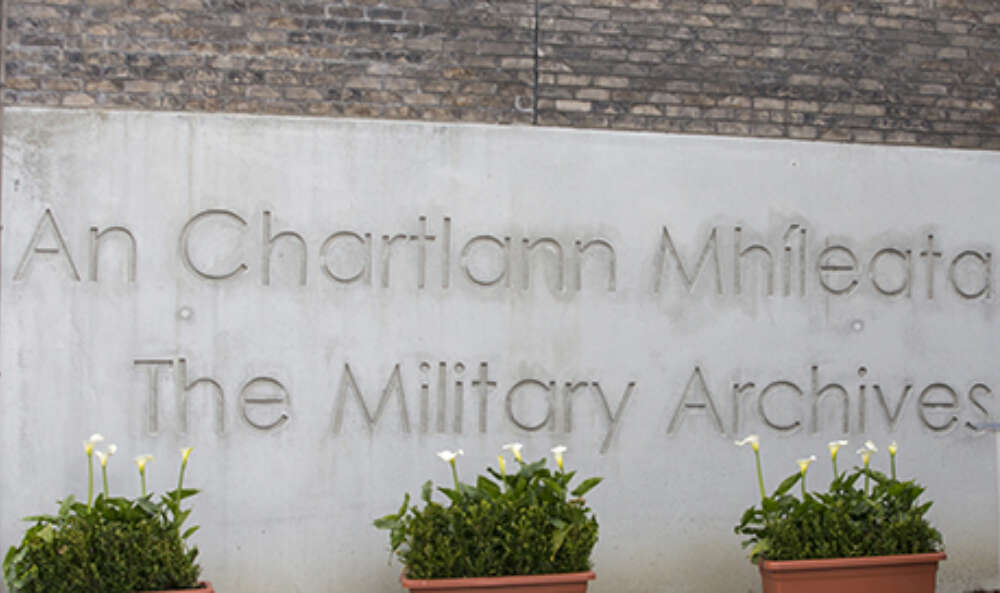
Our people
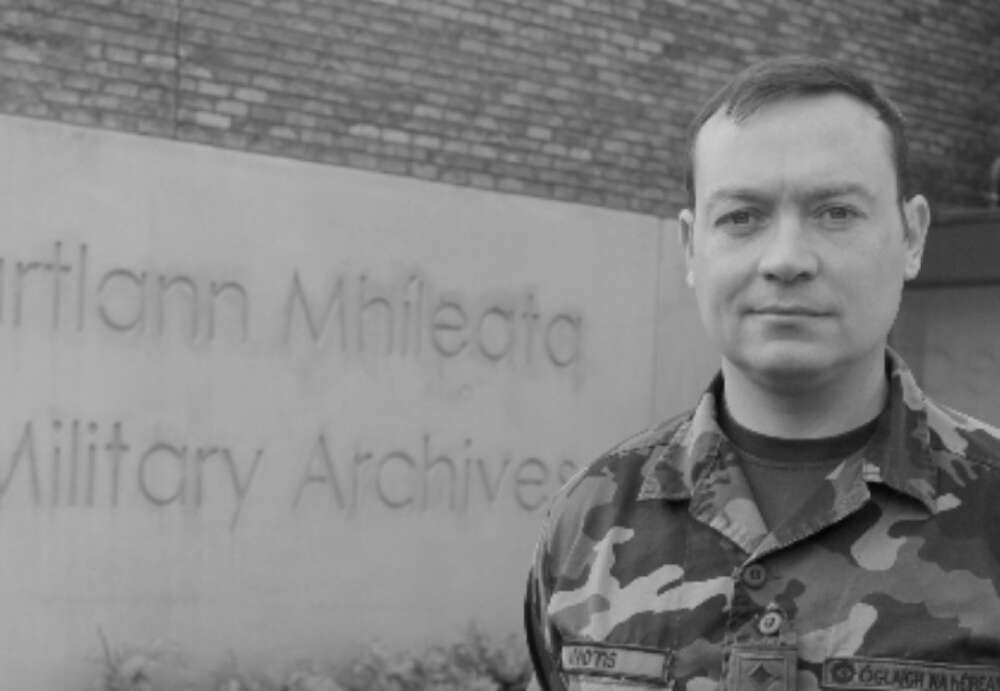
Commandant Daniel Ayiotis
Officer In Charge
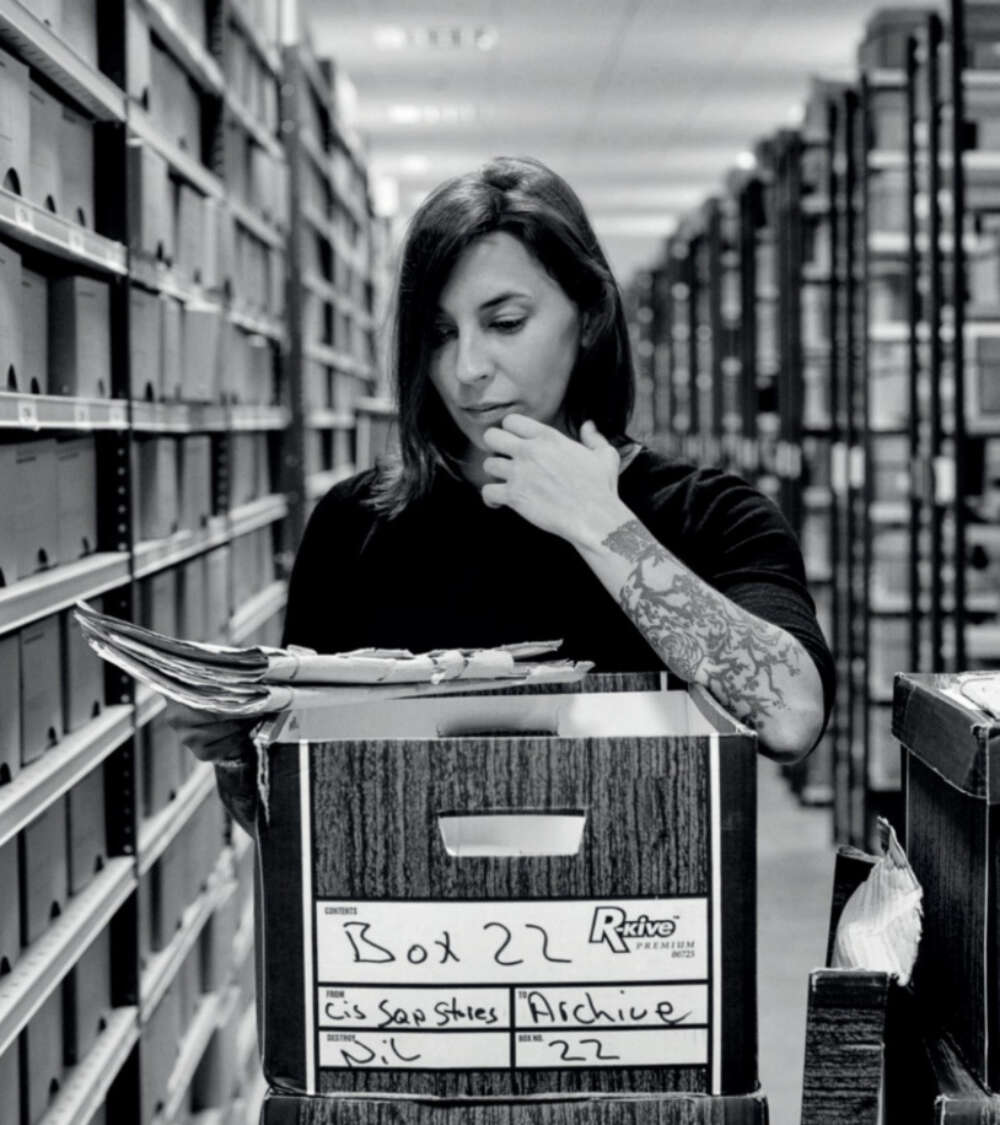
Cécile Chemin
Senior Archivist
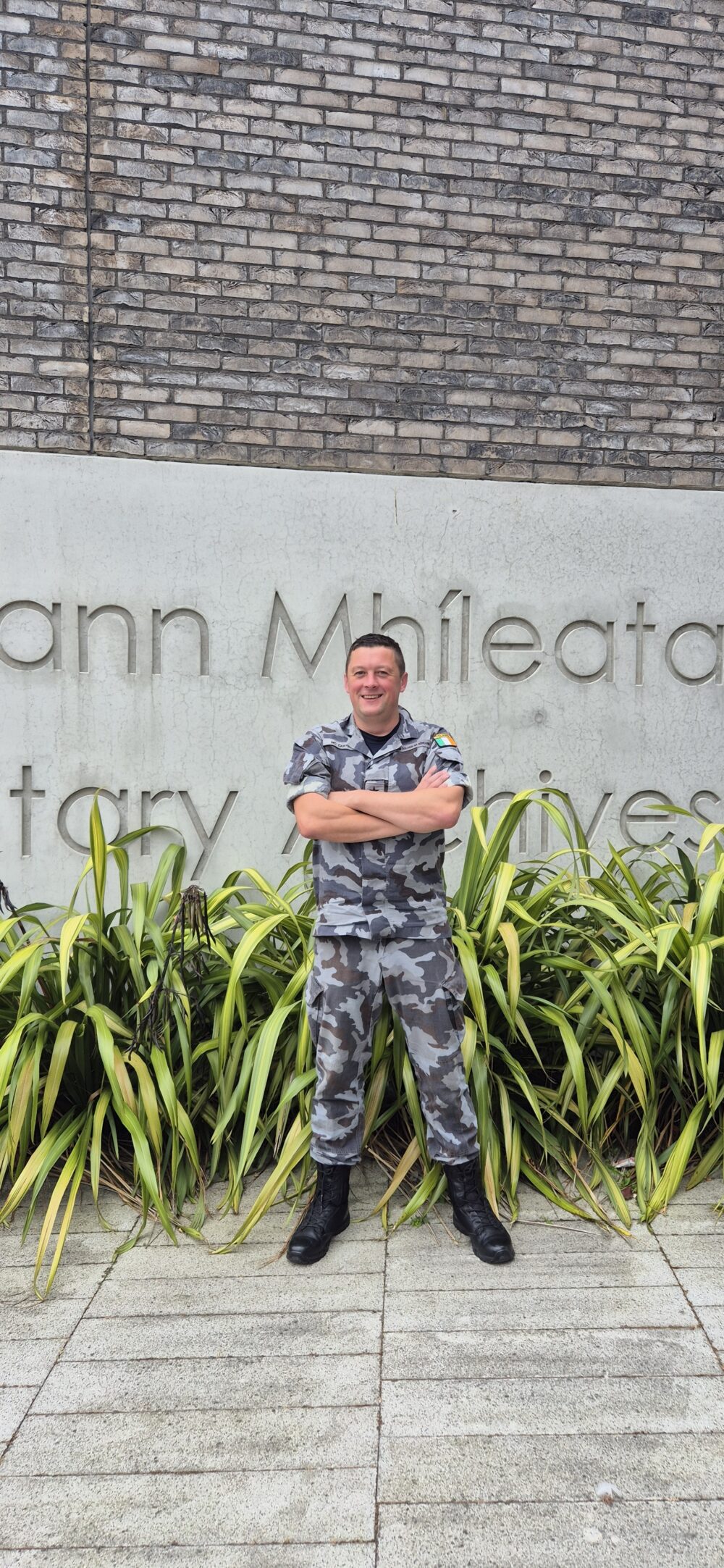
Lieutenant (NS) Niall McCarthy
Staff Officer

Hugh Beckett
Civilian Archivist
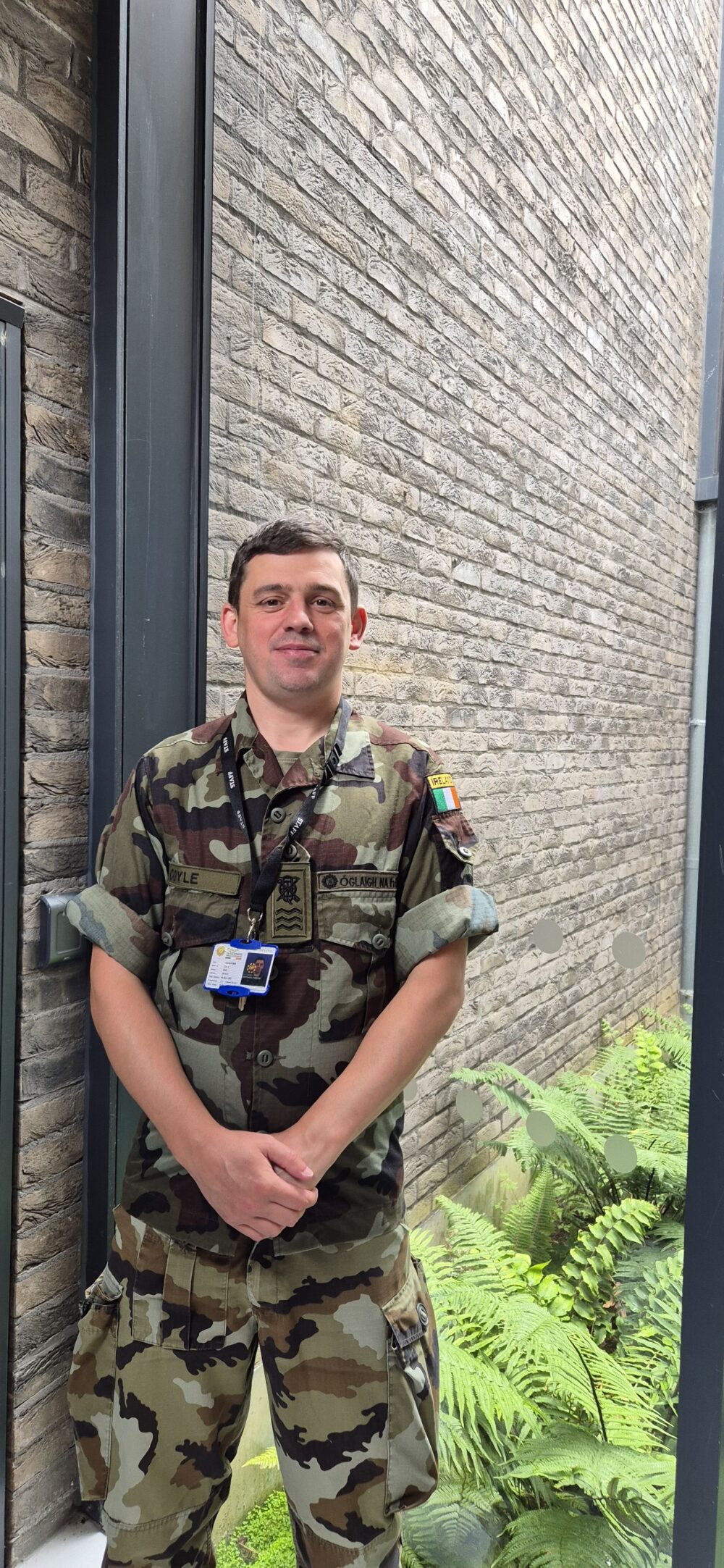
Company Quartermaster Sergeant Mark Coyle
Repository Manager
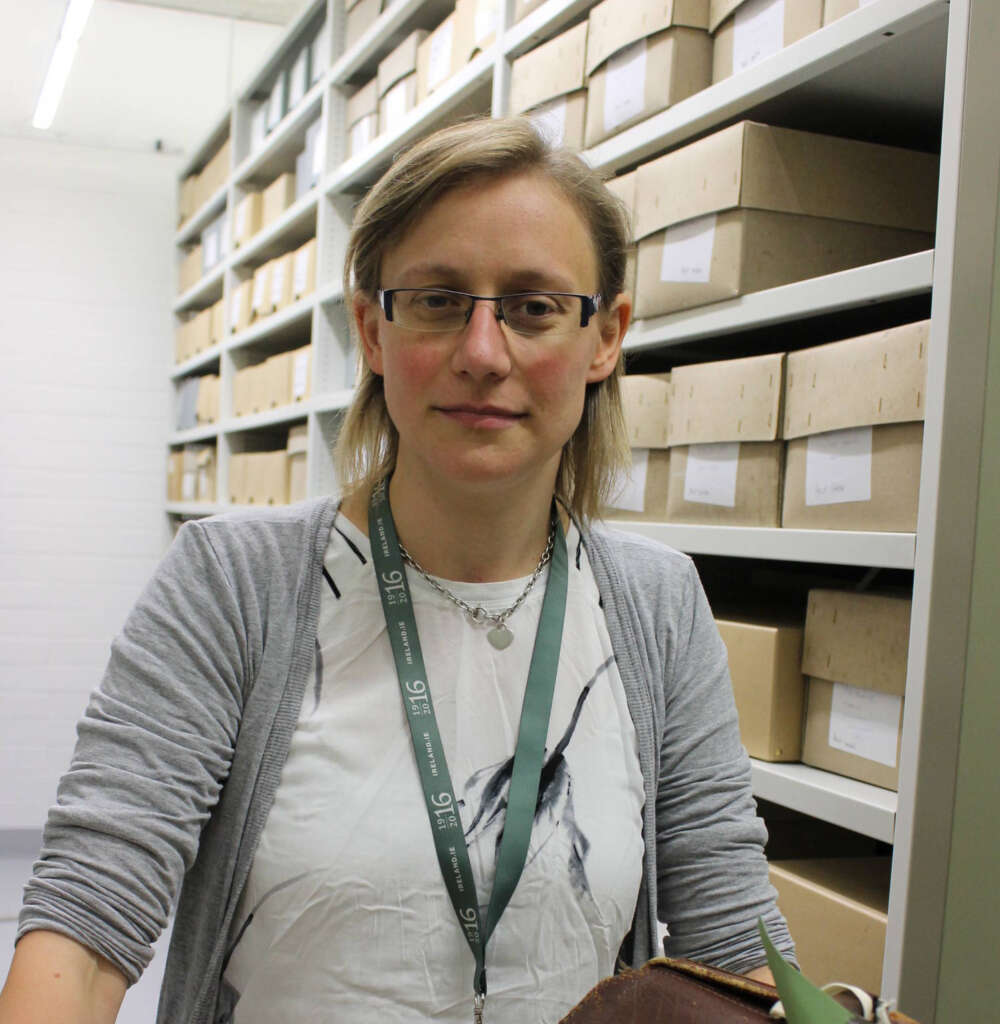
Noelle Grothier
Civilian Archivist
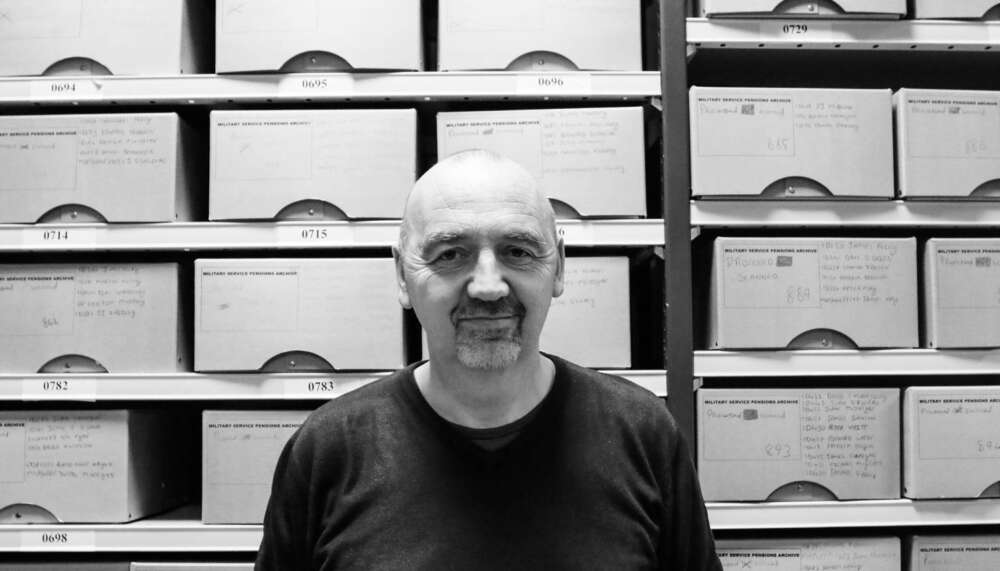
Michael Keane
Civilian Archivist
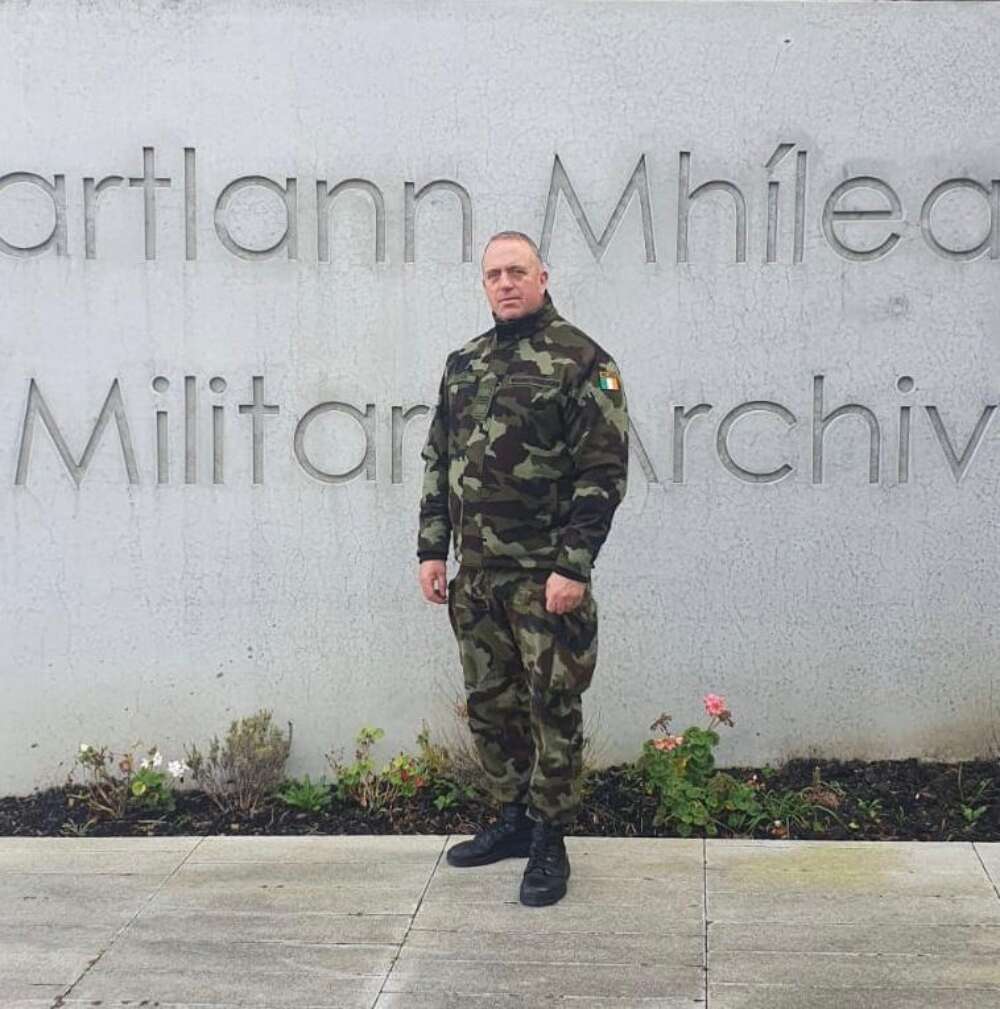
Sergeant Matthew Weafer
Records Manager
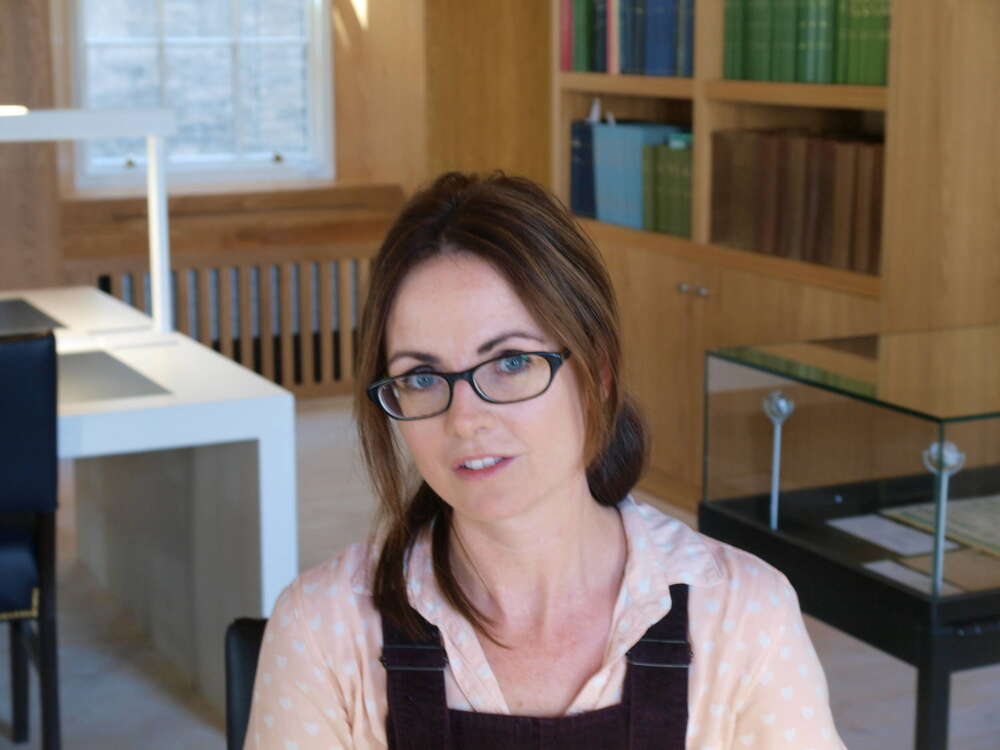
Lisa Dolan
Civilian Archivist
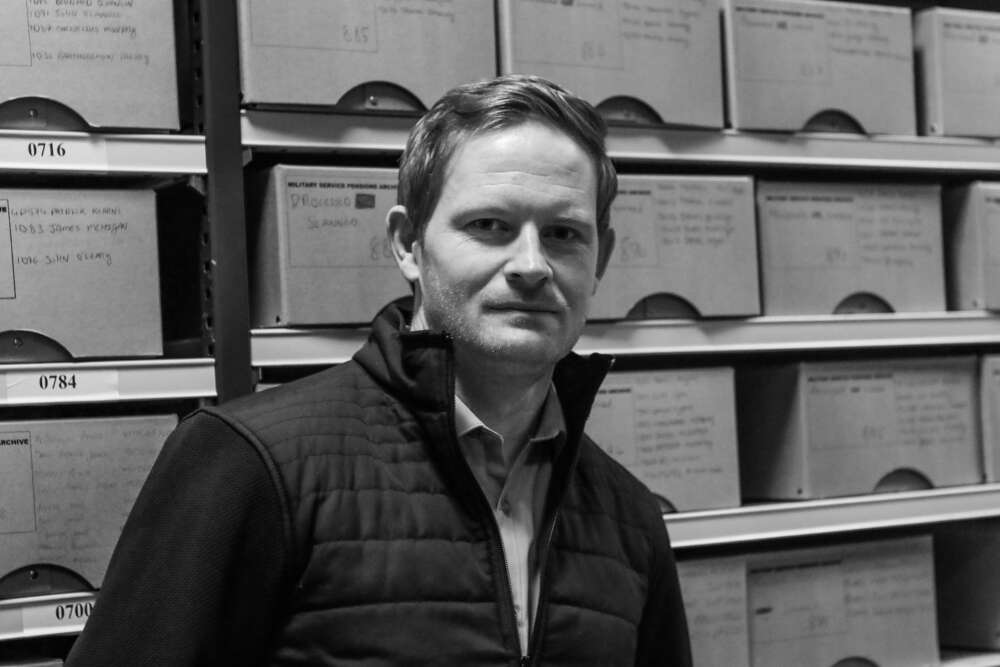
Robert McEvoy
Civilian Archivist
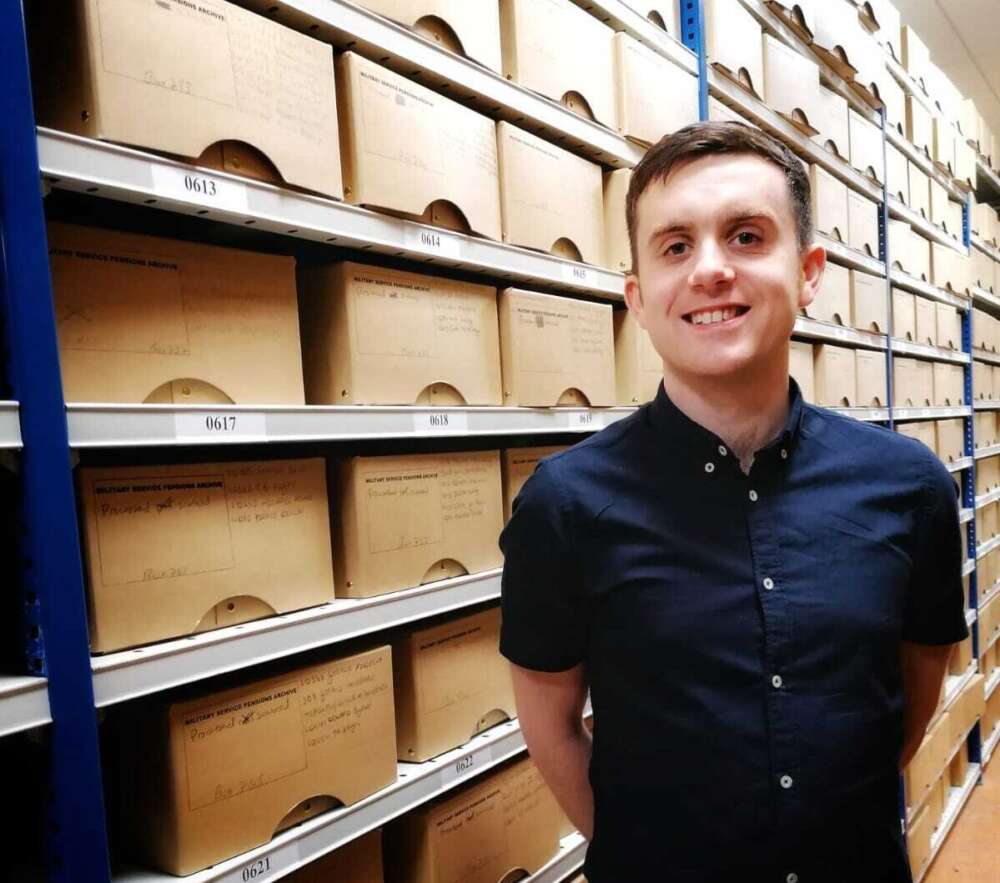
Sam McGrath
Civilian Archivist
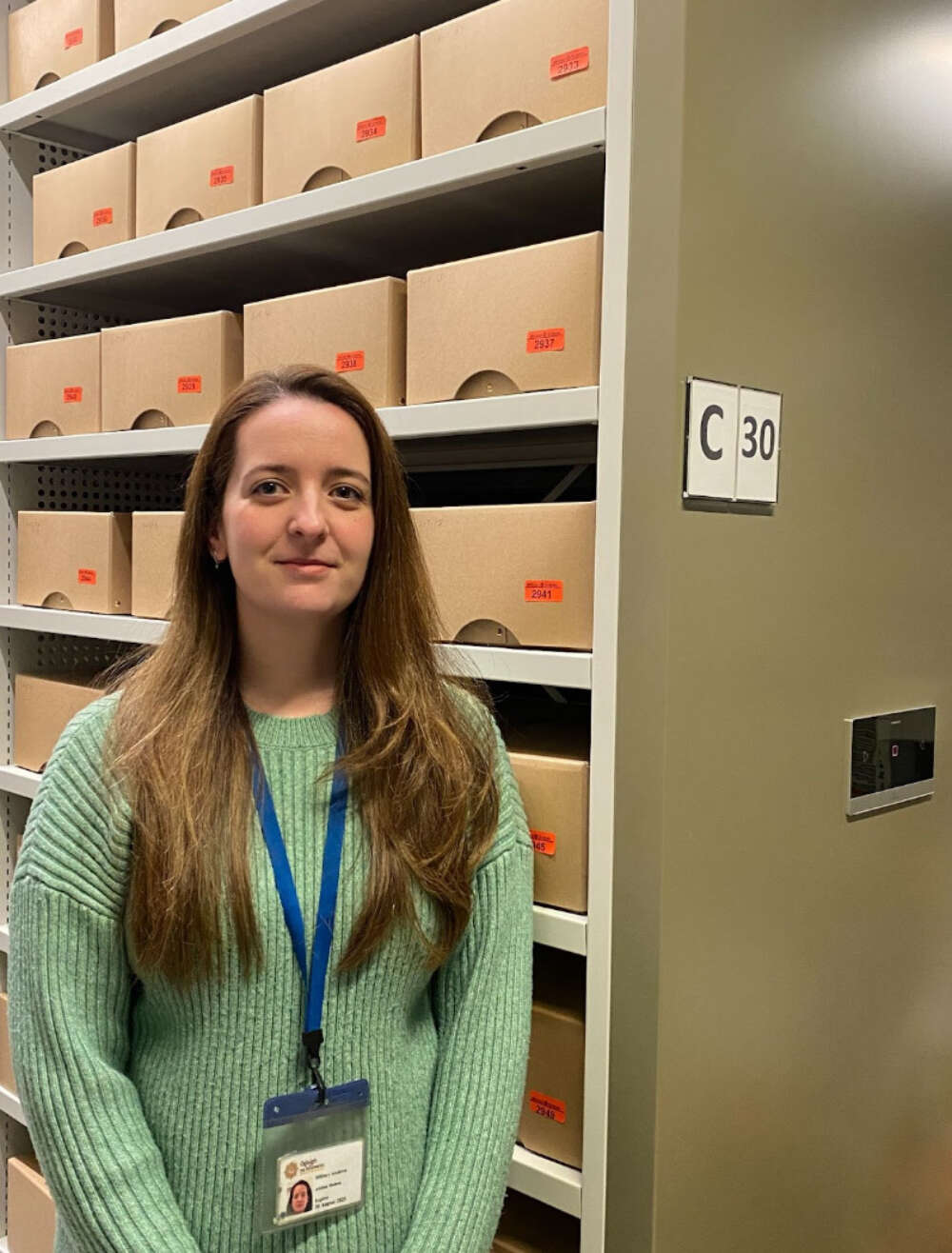
Aislinn Mohan
Civilian Archivist
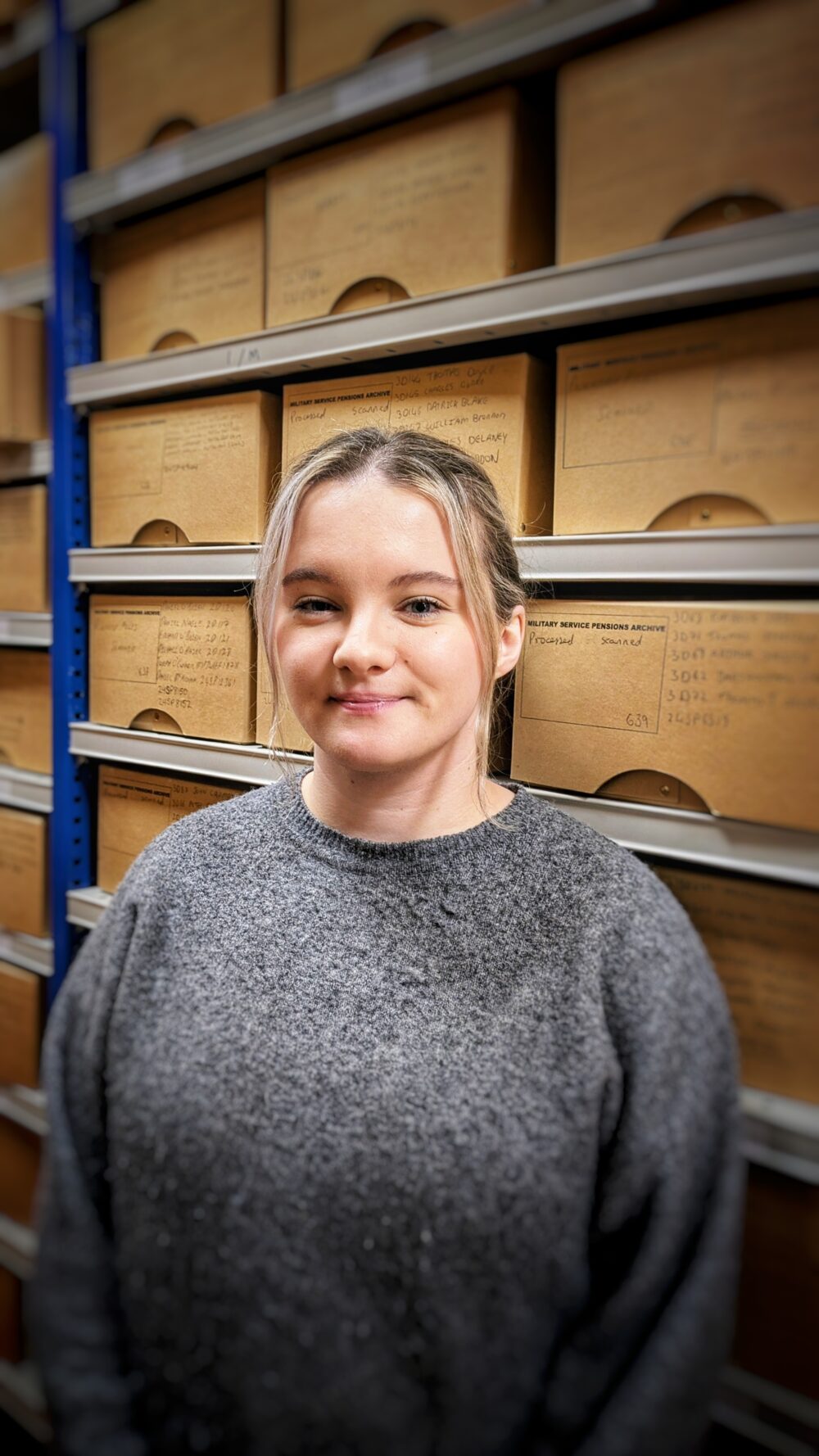
Hannah Kavanagh
Civilian Archivist


